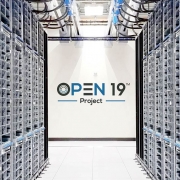Tweak to AWS Outposts reflects demand for greater cloud autonomy
Amazon Web Services (AWS) has made a minor change to its private-cloud appliance, AWS Outposts, that could significantly impact resiliency. The cloud provider has enabled local access to cloud administration, removing the appliance’s reliance on the public cloud. In the event of a network failure between the public cloud and the user’s data center, the private-cloud container platform can still be configured and maintained.
Many public-cloud providers have extended their offerings to now make their services accessible through the user’s own choice of data center. Services are typically billed in the same way as they are via the public cloud, and accessed through the same portal and software interfaces, but are now delivered from hardware and software hosted in the user’s own facility. Such services are in demand from customers seeking to meet compliance or data protection requirements, or to improve the end-user experience through lower latency.
In one business model, the cloud provider ships a server-storage private-cloud appliance to an organization’s data center. The organization manages the data center. The public-cloud provider is responsible for the hardware and middleware that delivers the cloud functionality.
The term “private cloud” describes a cloud platform where the user has access to elements of the platform not usually accessible in the public cloud (such as the data center facility, hardware and middleware). These appliances are a particular type of private cloud, not designed to be operated independently of the public cloud. They are best thought of as extensions of the public cloud to the on-premises data center (or colocation facility) since administration and software maintenance is performed via the public cloud.
As the public and private cloud use the same platform and application programming interfaces (APIs), applications can be built across the organization’s and the cloud provider’s data centers, and the platform can be managed as one. For more information on private-cloud appliances (see the Uptime Institute Intelligence report Cloud scalability and resiliency from first principles).
The resilience of this architecture has not, hitherto, been assured because the application still relies on the cloud provider’s ability to manage some services, such as the management interface. The public-cloud provider controls the interface for interacting with the user’s on-premises cloud (the “control plane”); if that interface goes down, so too does the ability to administrate the on-premises cloud.
Ironically, it is precisely during an outage that an administrator is most likely to want to make such changes to configuration — to reserve capacity for mission-critical workloads or to reprioritize applications to handle the loss of public-cloud capacity, for example. If an AWS Outpost appliance were being used in a factory to support manufacturing machinery, for instance, the inability to configure local capabilities during a network failure could significantly affect production.
It is for this reason that AWS’s announcement that its Elastic Kubernetes Service product (Amazon EKS) can be managed locally on AWS Outposts is important. Kubernetes is a platform used to manage containers. This new capability allows users to configure API endpoints on the AWS Outposts appliance, meaning the container configuration can be changed via the local network without connecting to the public cloud.
In practical terms, this addition makes AWS Outposts more resilient to outages because it can function in the event of a connectivity failure between the cloud provider and the data center. AWS Outposts is now far more feasible as a disaster-recovery or failover location, and more appropriate for edge locations, where connectivity might be less assured.
The most important aspect of this development, however, is that it indicates AWS — the largest cloud provider — is perhaps acknowledging that users don’t just want an extension of the public cloud to their own facilities. Although many organizations are pursuing a hybrid-cloud approach, where public and private cloud platforms can work together, they don’t want to sacrifice the autonomy of each of those environments.
Organizations want venues to work independently of each other if required, avoiding single points of failure. To address this desire, other AWS Outposts services may be made locally configurable over time as users demand autonomy and greater control over their cloud applications.


 2020
2020







